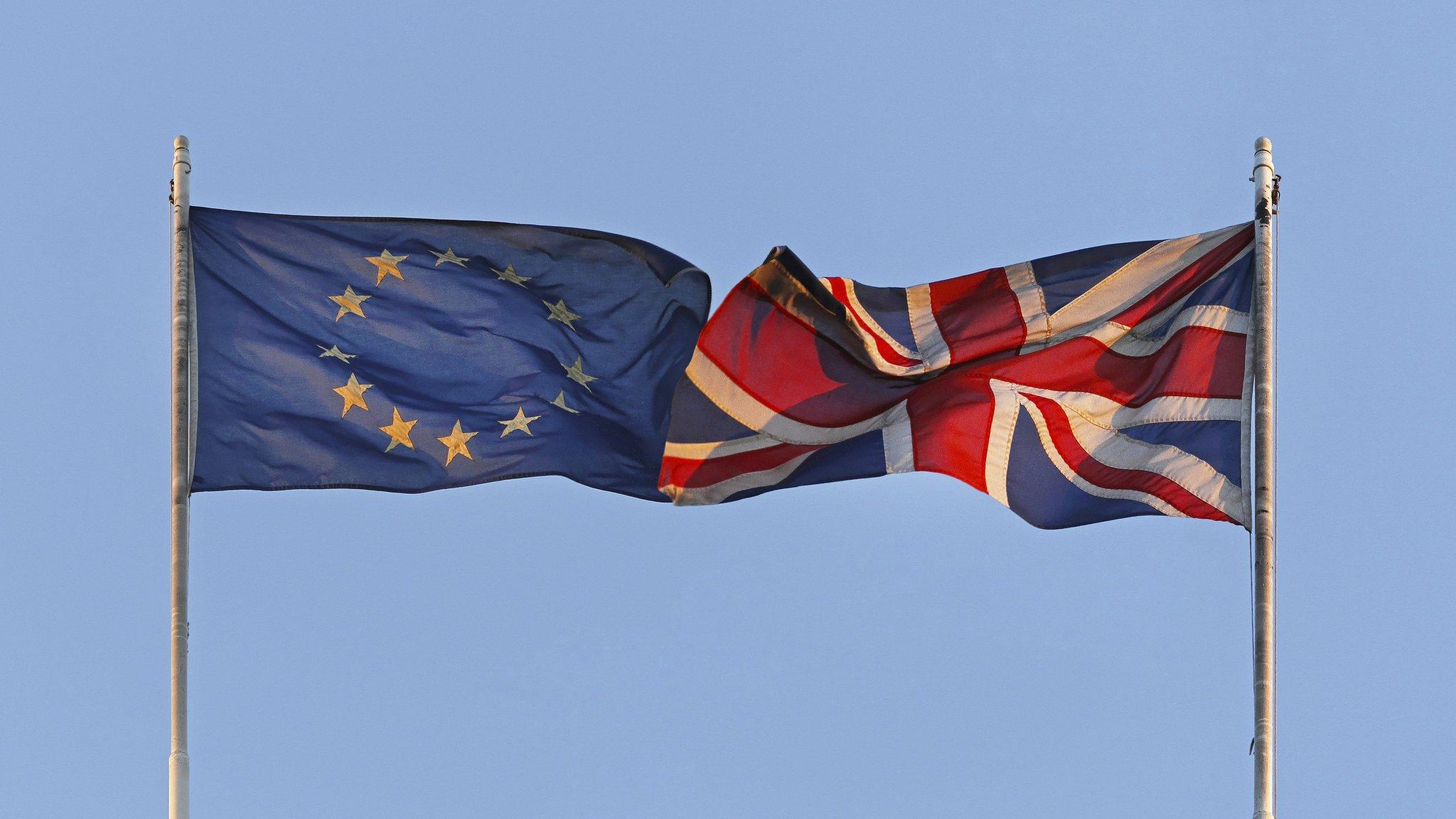EU referendum: Ethnic minorities could be key, says UKIP
- Published
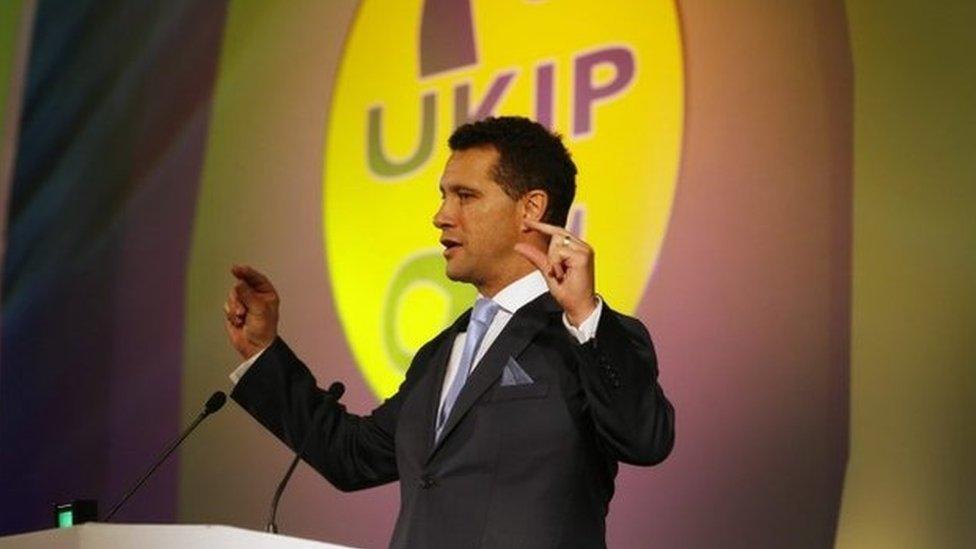
Campaigners for Britain to leave the EU should seek support from ethnic minorities as they are more Eurosceptic than people assume, UKIP has said.
Spokesman Steven Woolfe said black and ethnic minority voters were "feeling the strain" of EU migration and felt the EU "damages" security and freedom.
He will call for a fairer immigration system in a speech later.
Mr Woolfe also told the BBC it would be a "mistake" for there to be a single figurehead for the 'Leave' campaign.
He said there should be a "dream team" of leaders to attract the widest possible audience, and that UKIP leader Nigel Farage should play "a key role" in that.
"We have to reach out to everybody and Nigel is a very important part of that group of people that can reach out to those who will win us this referendum," he told Radio 4's Today.
Mr Farage is backing Leave.EU - one of two main groups vying to become the official 'Leave' campaign. The decision will be taken by the Electoral Commission.
Jon Moynihan, from the other, Vote Leave, played down talks of a merger and said he did not think there was "any need for a monolithic group" of anti-EU organisations.
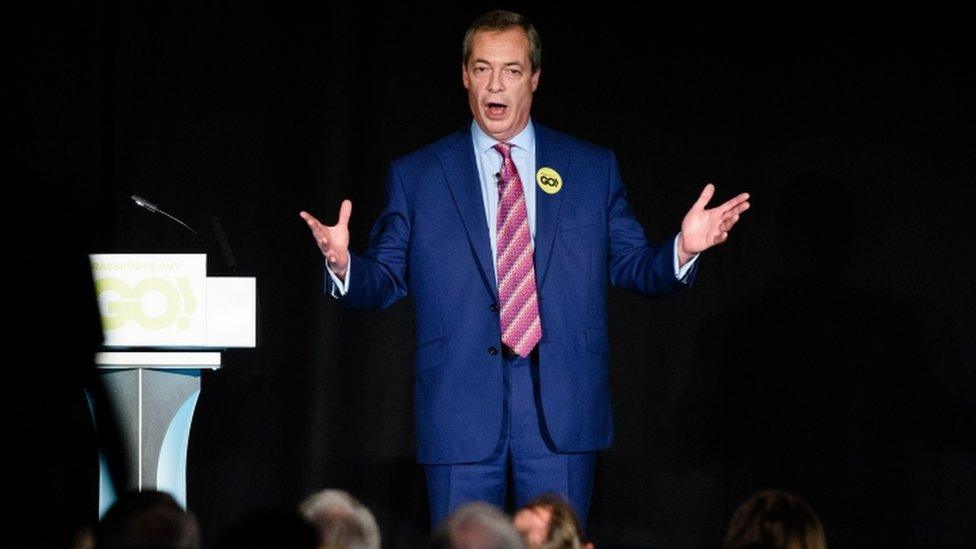
UKIP leader Nigel Farage should play 'a key role' in the campaign to leave the EU, but he should not be the sole figurehead, said Mr Woolfe
Speaking to BBC Radio 4's Today programme, Mr Woolfe said black and ethnic minority voters would play a crucial role in the vote on Britain's future in the EU.
Research by the British Future think-tank, which he addressed on Tuesday morning, highlighted concerns these voters had about immigration, he said.
"They want prosperity, the want their culture protected, they want freedom and they also want to be secure.
"They see the European Union as something that damages that," he said.
Immigration 'is good'
Challenging the assumption that non-white voters would be more likely to vote to stay in the EU, he said there had "always been an assumption" they were more likely to vote Labour than the Conservatives "and we now know that's not the case".
He told Today: "If granny wants to come over from Pakistan or India for a wedding, they have got more difficulties in terms of visas and getting visas than would a granny from either Spain or France.
"If you look at the black community, they are more likely to be struggling on low wages in the low skilled and unskilled areas, and that's the area that has been affected by large-scale migration."
While immigration could be a "good" thing, Mr Woolfe said, "large-scale migration on the numbers that we've got" drives down wages and causes societal pressures.
UKIP has never said it wanted to stop immigration as a whole, he added: "It's just that we want a managed and controlled system.
"I think the black and ethnic communities understand that."

David Cameron's four main aims for renegotiation
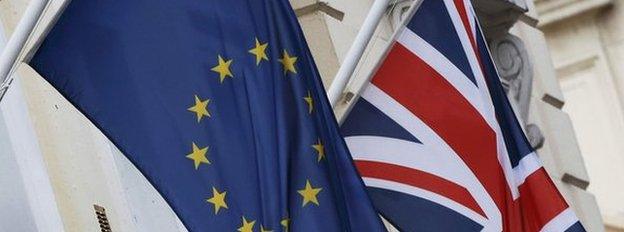
Economic governance: Securing an explicit recognition that the euro is not the only currency of the European Union, to ensure countries outside the eurozone are not disadvantaged. The UK wants safeguards that it will not have to contribute to eurozone bailouts
Competitiveness: Setting a target for the reduction of the "burden" of excessive regulation and extending the single market
Immigration: Restricting access to in-work and out-of-work benefits to EU migrants. Specifically, ministers want to stop those coming to the UK from claiming certain benefits until they have been resident for four years
Sovereignty: Allowing Britain to opt out from further political integration. Giving greater powers to national parliaments to block EU legislation
Referendum timeline: What will happen when?
Guide: All you need to know about the referendum

Addressing British Future, Mr Woolfe's message was that a fairer immigration system which favoured arrivals from the Commonwealth over Europeans should be at the centre of the campaign to leave the EU.
"If our campaign paints a positive and rational picture of what our border policy will be outside of the EU, we can win over the moderate majority of the black mixed ethnic community of which I am a member.
"The British black, mixed and ethnic community have a crucial role to play in our quest to reclaim our independence - and they will vote leave in their thousands if they believe they are voting for an outward-looking, prosperous and secure future," a pre-released text of his speech says.
The UK government has promised to hold an in-out referendum on Britain's membership of the EU before 2018.
No date has been set for the vote but it could be held as early as June if a deal is agreed on the UK's reform objectives at February's European Council summit.
- Published25 January 2016
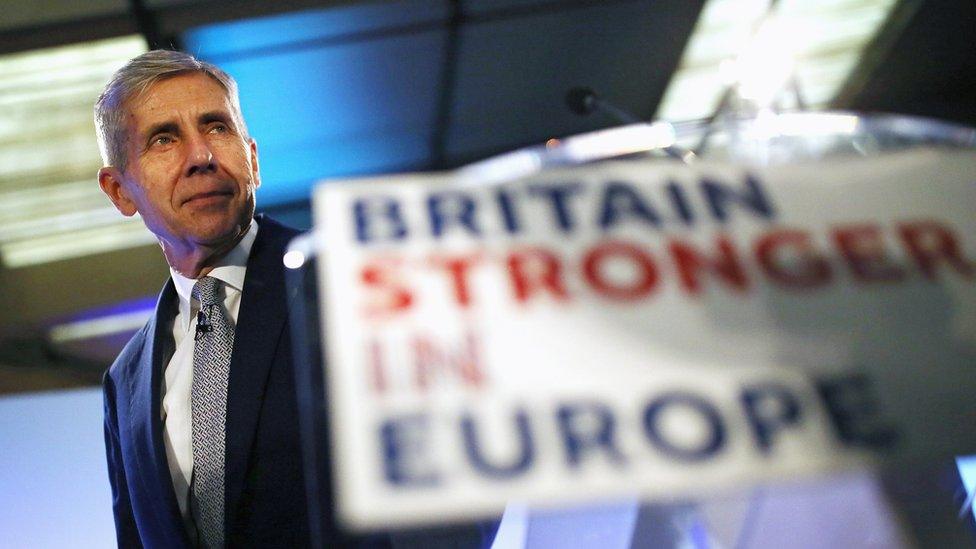
- Published30 December 2020

- Published20 February 2016
